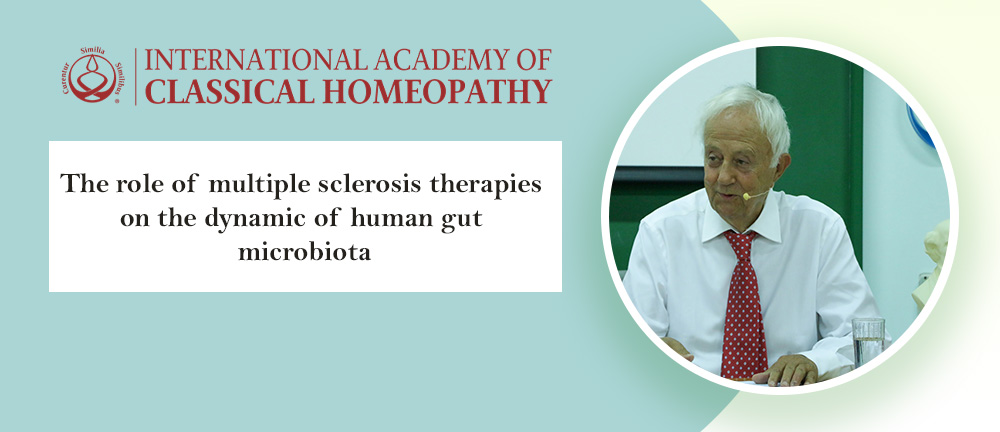
Abstract
Gut microbiota, the total microorganisms in our gastrointestinal tract, might have an implication in multiple sclerosis (MS), a demyelinating neurological disease. Our study included 50 MS patients and 21 healthy controls (HC). Twenty patients received a disease modifying therapy (DMT), interferon beta1a or teriflunomide, 19 DMT combined with homeopathy and 11 patients accepted only homeopathy. We collected in total 142 gut samples, two for each individual: at the study enrolment and eight weeks after treatment. We compared MS patients’ microbiome with HC, we analysed its evolution in time and the effect of interferon beta1a, teriflunomide and homeopathy. There was no difference in alpha diversity, only two beta diversity results related to homeopathy. Compared to HC, untreated MS patients had a decrease of Actinobacteria, Bifidobacterium, Faecalibacterium prauznitzii and increased Prevotella stercorea, while treated patients presented lowered Ruminococcus and Clostridium. Compared to the initial sample, treated MS patients had a decrease of Lachnospiraceae and Ruminococcus and an increased Enterococcus faecalis. Eubacterium oxidoreducens was reduced after homeopathic treatment. The study revealed that MS patients may present dysbiosis. Treatment with interferon beta1a, teriflunomide or homeopathy implied several taxonomic changes. DMTs and homeopathy might influence the gut microbiota.





